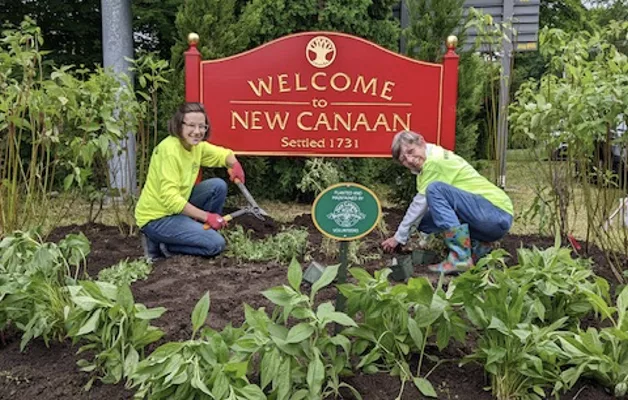By Anne White
Last year, not a single senior at Education Without Walls (EWoW), a micro-school in New Milford, Connecticut, received a rejection letter from any college or university where they applied. All five members of the senior class were not only accepted to their first-choice schools but to every institution where they applied. This year, the trend continues: of the nine seniors in the class, early decision acceptances have already rolled in, including two at Wesleyan University and one at Bard College.
How does a school with no formal sports teams and just 25 students in its high school program consistently outperform national trends? The answer lies in EWoW’s deeply personalized, student-focused approach to education—an approach that prioritizes individual strengths, passions, and aspirations.
The College Admissions Landscape
The national landscape of college admissions grows increasingly competitive each year. According to The New York Times, the so-called “Ivy-Plus” schools—the Ivy League, along with MIT, Duke, Stanford, and the University of Chicago—received about 175,000 applications in 2002. By 2022, that number had ballooned to over 590,000, even though the number of available spots barely changed. Acceptance rates at Ivy League schools now hover below 10%, dipping as low as 3% at the most competitive institutions.
EWoW’s results defy these odds. The micro-school has achieved a remarkable 100% acceptance rate for its seniors, underscoring the potential of a tailored, holistic approach to education.
A Personalized Process
EWoW’s college placement strategy begins well before senior year. Founder Lockey Coughlin explains the method: “We craft each application to create an accurate, honest picture of the student. Each part of the application—from teacher recommendations to transcripts to essays—supports the others, creating a cohesive narrative.”
This coherence ensures that admissions officers see a clear, compelling story for each applicant. EWoW’s small size—with a counselor-to-student ratio of about 1:15 compared to the national average of 385:1, according to the American School Counselor Association—allows staff to dedicate significant time to each student. “Knowing our students well helps us guide them to colleges that match their learning styles, career goals, and values,” says Coughlin.
Authenticity in Essays
A cornerstone of EWoW’s approach is helping students craft authentic, memorable essays. Emma Barhydt, an English teacher and college counselor at the school, emphasizes the importance of vulnerability. “Essays should highlight the student’s individuality and tell a deeply personal story,” she says. “This is how students stand out.”
Nationally, admissions officers spend an average of eight minutes reviewing each application, according to the National Association for College Admission Counseling (NACAC). In this brief window, essays often make the difference. Barhydt employs a five-step process to help students identify core values and experiences that resonate. “We want essays that are authentic and memorable,” she says.
One student wrote about rediscovering their individuality after stepping away from social media, while another shared how caring for a younger sibling taught them the importance of grounding and presence. These essays demonstrate qualities colleges value, such as resilience, empathy, and emotional intelligence.
Experiential Learning
While many high schools emphasize Advanced Placement (AP) or International Baccalaureate (IB) courses, EWoW encourages students to pursue subjects aligned with their passions. “A student who loves biology might explore evolutionary biology or entomology, rather than just taking AP Biology,” says Coughlin. “This approach allows students to discover whether their interests are hobbies or potential career paths.”
This focus on experiential learning helps students make informed choices about their futures. “A student who spends two years studying botany with us knows whether they love it enough to pursue it in college,” says Coughlin.
Strategic School Selection
EWoW also excels at pairing students with the right colleges. Coughlin describes their approach: “When our students identify a dream school, we analyze that school’s mission and values to ensure a good match.” For example, Wesleyan emphasizes curiosity, while Connecticut College prioritizes kindness. These insights help EWoW tailor applications that resonate with admissions officers.
“The key is to highlight what each school values,” says Coughlin. “For Wesleyan, we emphasized our students’ love of learning and intellectual curiosity. For Connecticut College, we focused on character and kindness.”
Holistic Profiles
Teacher recommendations, independent projects, and extracurricular activities also play a crucial role. “Colleges want to see a well-rounded individual,” Barhydt explains. “It’s not just about academics, but about character and how a student can contribute to the community.”
At EWoW, recommendations are carefully aligned with other application components to create a unified narrative. Students’ applications often feature unique projects, such as a podcast on social justice or a wetlands restoration initiative. These endeavors demonstrate initiative and align with colleges’ growing emphasis on holistic admissions.
The Role of Early Decision
EWoW leverages the early decision process to improve students’ chances of acceptance. Early decision applicants signal clear commitment to their chosen school, often resulting in higher acceptance rates. For example, Wesleyan’s early decision acceptance rate is nearly double its regular decision rate.
“When students know where they want to go, we help them make their case,” says Coughlin. This includes tailored essays, demonstrated interest through campus visits, and meaningful interactions with admissions representatives.
Lessons for Other Schools
EWoW’s approach offers valuable insights for larger schools. Reducing counselor caseloads, incorporating experiential learning, and fostering authenticity in applications could significantly improve college placement outcomes.
As noted in an interview with Barron’s, Cozy Wittman, an admissions expert, emphasized the importance of aligning educational experiences with admissions realities: “The college admissions process was never set up to be a meritocracy. It’s about finding a school that serves the student and their family. Understanding that landscape helps students make better decisions.”
A Student-Centered Model
Ultimately, EWoW’s success stems from its commitment to individualized education. “Every child has a superpower,” says Coughlin. “Our job is to help them discover it and showcase it to the world.”
In a college admissions landscape often defined by stress and competition, EWoW’s model offers a hopeful reminder that personalization and authenticity can lead to extraordinary results.


